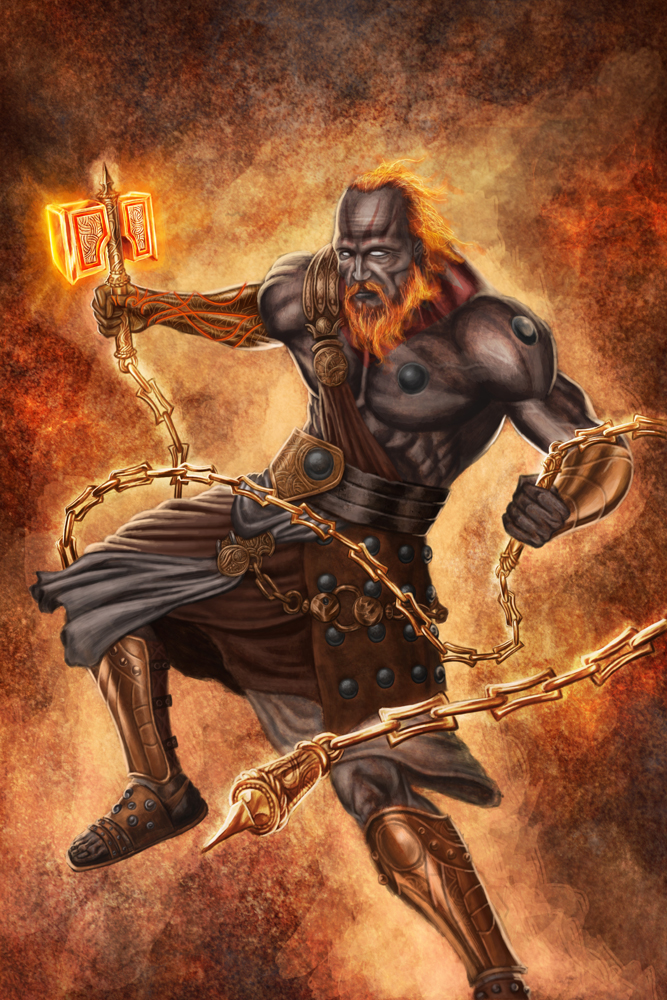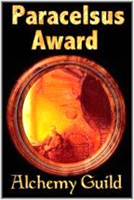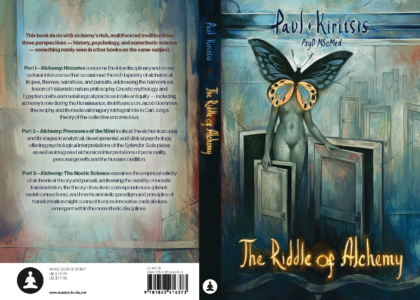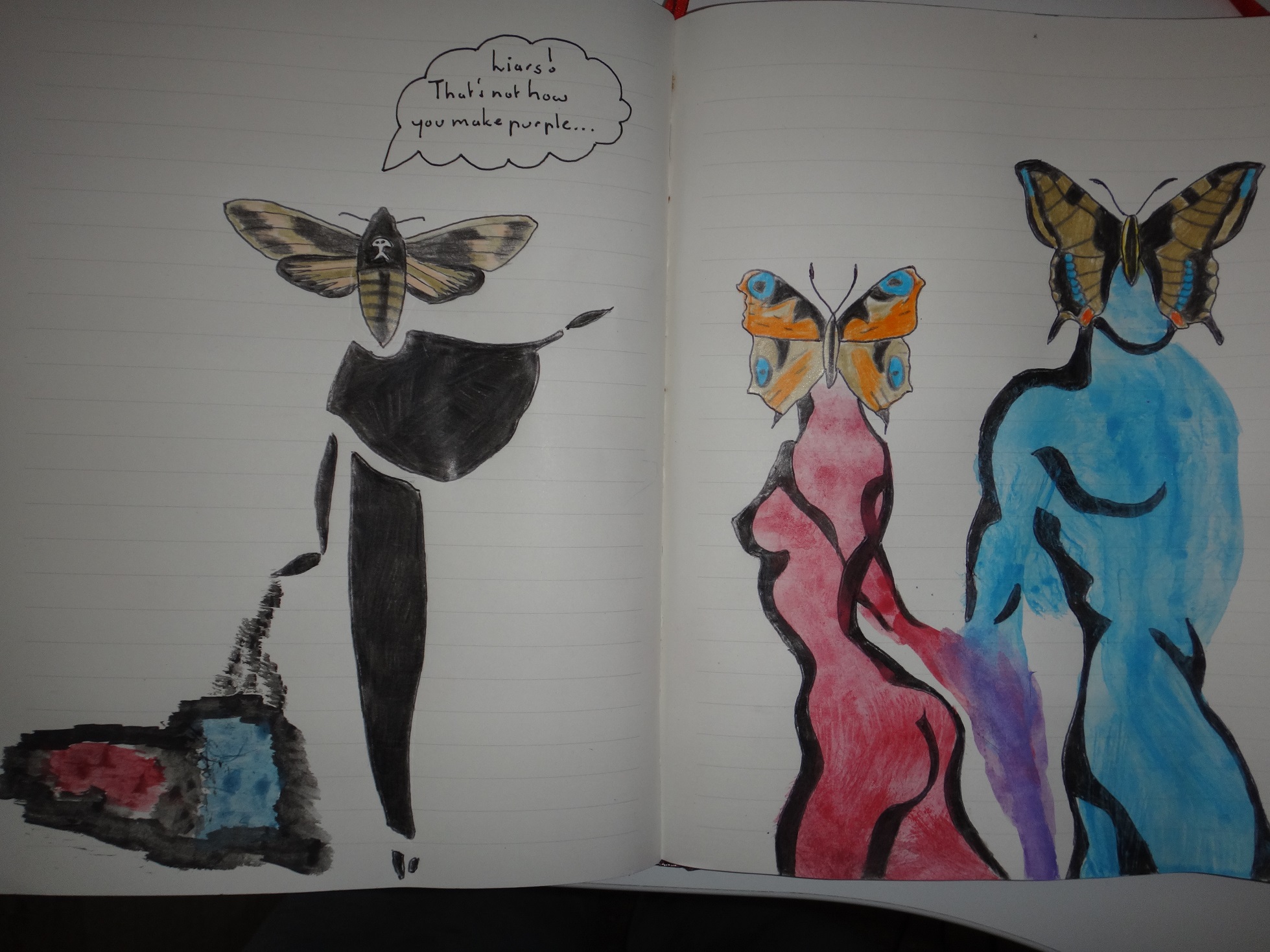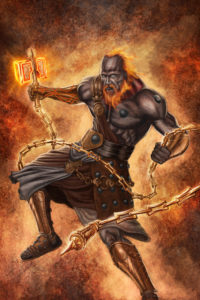
Hephaestus was the Olympian god of fire and the artisanal crafts, particularly metallurgy which involved the smelting and pouring of metals into casts under searing temperatures. His relation to fire also connected him to lava and volcanic eruptions. Two of his major epithets, Chalkeus (Coppersmith) and Klutotechnes (Renowned artificer) like the god with the aforementioned traits indefinitely. Surprisingly, his most striking characteristic related to his anatomy; Hephaestus was born lame and ugly. This is somewhat unprecedented given that the Olympian immortals were all supernal beings of the highest order, free from physical imperfections or blemishes of any kind. There are variant opinions regarding the sire of his birth. In some classical sources, including Homer’s Iliad and Odyssey, he is the progeny of the king and queen of gods and mortals, Zeus and Hera respectively. In others like Hesiod he is the sole offspring of the latter whose motivation to give birth was wholly dictated by jealousy of her husband’s autogenerative act of bringing forth Pallas Athena. Homer’s Iliad entertains two reasons relating to the god’s subsequent expulsion from Olympus. In the first and lesser known, Hera is mortified by her infant son’s abnormalities and seeks to remedy the problem by unmercifully hurling him from the precipitous cliffs of Olympus. A second and more commonly acknowledged version which is far more respectable and forgiving towards the otherwise unbecoming personage of Hera renders Hephaestus on the receiving end of Zeus’s fury for attempting to interfere in a marital quarrel and defend his mother:
“Thrown by angry Jove,
Sheer o’er the crystal battlements; from morn
To noon he fell, from moon to dewy eve,
A summer’s day, and with the settling sun
Dropt from the zenith like a falling star,
On Lemnos, the Aegean isle.”
Having been rejected by his biological parents, Hephaestus was reared in the element of water by the mother of Achilles, the Nereid Thetis and the Oceanid Eurynome. When he finally came of age he sought retribution against his mother’s spiteful act along with reinstalment amongst the immortals on the mount of Olympus. He proceeds to fashion a magical throne out of gold and other precious stones, enmesh it with finely embroidered nets invisible to the untutored eye and delivers it to his mother on Olympus under the pretence of a gift. Blind to her son’s conspiracy Hera accepts the gift, foolhardily one might say, and becomes entangled as a result. Resolution is wrought through Dionysus, the god of wine, who succeeds in placating Hephaestus by rendering him drunk and then leading him back to heavenly Olympus. Mother and son eventually reconcile, if only because the latter receives a gift he can’t refuse; a bride in Aphrodite, the goddess of love and beauty.
From that point onwards the god embarks on a more tranquil mode of being, biding his time by either constructing or designing edifices, jewellery, embroidery and arms for the gods, or inventing peculiar mechanical devices. Some of the most awe-inspiring and formidable implements used by the Olympian gods and goddesses were ensouled by Hephaestus’s abyssal and multi-coloured imagination. These include, but are not exclusive to, the grand Olympian palace, Helios’ gilded chariot, Hermes’ winged petasos and helmet, the girdle of Aphrodite, Eros’s bow and arrows, as well as the weaponry of famous Trajan heroes like Achilles and Heracles. More significant feats were the assembly of automatons as personal assistants, the fabrication of indestructible and immortal dogs to serve a divine master in Alcinous, King of the Phoenicians, and the fabrication of a Herculean man of bronze named Talos whom he placed on Crete to patrol the shore and safeguard Europa, a Phoenician princess loved by Zeus, from hostile foreign adversaries.
In the Trojan War, Hephaestus sides with the Achaeans, the Greeks. The motivation for his anti-Trojan sentiments probably stems from the fact that a Trojan mortal dared to dishonour and crudely insult his own mother, Queen Hera, by awarding the prize of the golden apple to foam-born Aphrodite. For Achilles, the demi-god who’d go on to become a fundamental exponent of the Achaean forces, Hephaestus fashioned an elaborate shield from an amalgamation of gold, silver, tin and copper. He also came to the hero’s aid when the river god Scamandar, a son of Oceanus and Tethys, attempted to drown him as retribution for a past offence. According to the Iliad, Scamandar became sentient of the fact that the Achaeans had set up their camp near his mouth. He subsequently burst his banks intending to drown the hero, but Hephaestus came to the rescue, spurring a conflagration that rapidly evaporated Scamandar’s torrent.
Sacred to the god of fire and metalworking was the hammer, tongs and the anvil, the metal iron, the donkey or ass and the salamander, as well as the crane bird. His Latin equivalent is Vulcan.

